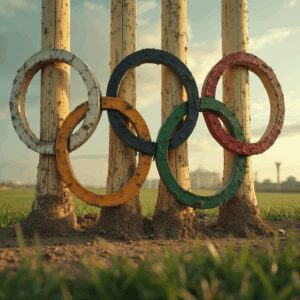Sport, Money, Politics and Power
Over the past several years we have come to realise that sport, like all aspects of life in global society, is subject to the vagaries of money, politics and power.
There remains a rather archaic understanding that sport is completely independent of the likes of money, politics and power. However, close examination of the reality of sport today reveals the extent to which the lies are being unmasked and yet the gatekeepers of sport maintain their outlandishly embarrassing stance, in stark contradiction.
The problem for sport is that successive generations have come through with an understanding, based on practice and their experiences, that increasingly, sport is surrendering on the altar of expediency of one sort or another
Social benefits
We were once fed the view that sport was being promoted as a social good. People were supposed to get into sport because it was an aspect of life with immeasurable benefits. Included amongst the benefits were camaraderie, long-lasting friendships, discipline, integrity, pursuit of excellence, all leading to a better world.
It took some time before we were made aware that from antiquity, sport was riddled with hypocrisy of all types.
Hidden truths were eventually exposed.
We learnt that the ancient Olympics were a hotbed of discrimination. The substantive social divisions in society at the time manifested themselves in sport. Discrimination on the basis of class (economics), race, religion, status, power, geography and ethnicity, were all evident. The problem was that those who sought to lead sport offered up as their primary focus an attempt at redressing the social ills of society. Societies with their own sordid histories of chronic exploitation at home, imposed this on those they conquered in the name of a variety of self-perceived ‘good causes’, imposing sport as part of the fundamental ethos of conquest.
History reveals that while the conquerors insisted on the value of recreation for themselves they ensured that the conquered were made to despise their own traditional forms of recreation and sport and forced to adopt what was brought from abroad.
Conquest and colonisation integrated carefully massaged their exploitation through every conceivable social institution, including sport. This guaranteed the total institutional changes of the conquered peoples and the societies that emerged therefrom.
Unfortunately, it took an inordinately long time for the conquered and exploited peoples across the world to come to an understanding of debilitating value of sport as brought by their colonisers.
For centuries, the proponents and advocates of sport embellished their lies as they torturously transformed our understanding of social life.
Amateurism suited the philanthropists very well, so much so that they created institutions, such as the International Olympic Committee, to showcase their own perception of a social reality that manifested their individual and collective best interests.
Money and sport
Money was never far from sport. Indeed, history reveals a relationship between the two that at once appeared to benefit and corrupt both leaders and athletes in a manner that has sustained itself through the centuries.
Position in society, based on wealth, facilitated the systematic transition from the falsehood/sham of amateurism through to the chronically embarrassing misnomer that is professional sport today. Sport leaders understood, very early in history, that sport cannot survive without money.
Money leads to an incredible penchant for greed. Greed transforms human beings, allowing their true selves to be exposed to those unwilling to turn a blind eye to what emerges before them.
There may well be reason to review the history of sport to allow us to see more clearly the travesty that has dominated global sport, and threatens to continue through the future.
Financial corruption in sport is not a new phenomenon. It appears to have been pervasive throughout sport’s history. That this has not been sufficiently acknowledged must be one of the major tragedies in sporting history.
In the recent past the world may well have been shocked at the near-obscene financial transactions attendant to several sports. The foray in sport by Arab nations, anxious to better position themselves more generally, in the global space, has led to a kind of ‘sports war’ that, while it benefits athletes at present, may well lead to sport’s demise almost as rapidly as its ascent.
All sport thrive on the achievements of athletes, most of whom offer their lives on the field of play without remuneration packages commensurate with those paid to the owners.
We have created a genre of athletes, coaches and agents now willing to do whatever is deemed necessary to guarantee success, regardless of the consequences for the athlete’s well-being.
Some athletes may well have died because of the foregoing approach, and their secrets of success buried with them. History ended with their demise and the world of sport laments…forever. Truth has not always been revealed.
Politics in sport
Sport politics is almost always described as much more sinister than national and international politics amongst parties and individuals contesting to lead their respective countries. That image of sport is now more popular than ever before in sport’s history.
However, just as money dictates the fortunes of individual politicians and the outcome of national elections, so too it is perhaps the single most important feature of global sport.
The changing face of golf is perhaps the most recent example.
The Indian Premier League (IPL) a cricketing phenomenon, appears to have spawned a new financial empire within Cricket, seemingly placing the International Cricket Council (ICC) in a rather awkward position in terms of leadership of the sport as it has done in India.
The changing financial fortunes that the IPL has achieved in India and around an ever-increasing number of cricketing nations, may well offer Cricket its best chance of getting onto the Sports Programme of the Summer Olympics.
Many seem to think that in most sports, leaders are increasingly often elected on the basis of their personal wealth or their access and/or alliances with persons of immense wealth. The capacity to guarantee the flow of the aforementioned wealth to the benefit of stakeholders almost always attract vociferous support from the latter.
Increasingly too, there appears to be some concern that athletes are not allowed to effectively impact the direction of the sports in which they are engaged. In this regard, the boast of international sporting organisations that athletes are integrated into their decision-making processes appear mor fiction than reality.
An all too familiar approach of some sport politicians is to retreat into the realm of science in support of what may well appear to be their own prejudices. This strategy, many should recall, was used by politicians in the past to justify racism in many advanced industrial societies, leading to extensive discrimination against people of colour, ethnicity and women.
The international media have often escaped scrutiny of the role they play in propping up successive generations of sport politicians. Some seem only too eager to surrender their profession for the ’30 pieces of silver’, leaving many athletes on the side-lines, marginalised for any reason that they help make popular at any given time.
Sport essentially reflects the north-south, rich-poor divisions that continue to withstand the passage of time and the claim of changing values. Athletes from small countries with open, vulnerable economies remain relegated to the periphery by those larger ones at the centre, consolidating the gains the latter have been making since conquest and colonisation.
Sport leaders, like so many political leaders, seem eager to maintain the approach of benevolent dictatorships, using charisma as the best option for their individual success while proclaiming the success of their respective organisations.
Power in sport
Nelson Mandela is credited for highlighting the awesome power of sport. This was in reference to the healing process amongst members of a once bitterly divided nation.
Many have readily, not only endorsed Mandela’s statement, but have sought to enshrine it as a sort of philosophical justification for their involvement, promotion and leadership in sport.
Few have taken the time to analyse what exactly constitutes the power in sport as distinct from the power of sport.
Did those who transformed the International Olympic Committee into the sport monolith that it is today, essentially dictating to sport rather than engaging them, ever acknowledge what they are really about?
Is the IOC a leader in sport or an organisation that blows like chaff in the wind, responsive to the dictates of the few in an area of social endeavour that has displayed a remarkable capacity to morph itself through the decades and use its vast financial resources to form alliances that serve to maintain its hegemonic control of sport?
The IOC’s acceptance of financially powerful and influential individuals and self-perpetuating mode of operation appears at variance with fundamental democratic principles and practices. One is forced to ask whether or not it leaves the athletes, the organisations and countries they represent, committed to a different typological engagement that seems to suggest a heavily values-based mode of operation that does not always reflect practice.
The IOC has apparently become the world’s sport police. If this is today’s reality then the organisation has abrogated this image unto itself. How much longer will this be allowed to continue is anyone’s guess.
Boxing and Weightlifting are apparent international federations (IF) being challenged by the IOC. Many ponder on which IF is most likely to be on ‘the chopping block’ next and what would be the pretext.
No organisation that is reliant on the IOC and the revenues of the Olympic Games, all four, appears exempt from becoming a target called to account to the former, at any time and for any cause.
Increasingly, highly marketable and financially viable sport seems to be the ones most likely to carry the day.
Perhaps Caribbean countries may re-invent ‘pitching marbles’, get some major financial backers and access to major television sporting networks and we could finally get one of our sports on the Olympic Programme. In the politics of sport, anything can happen!






